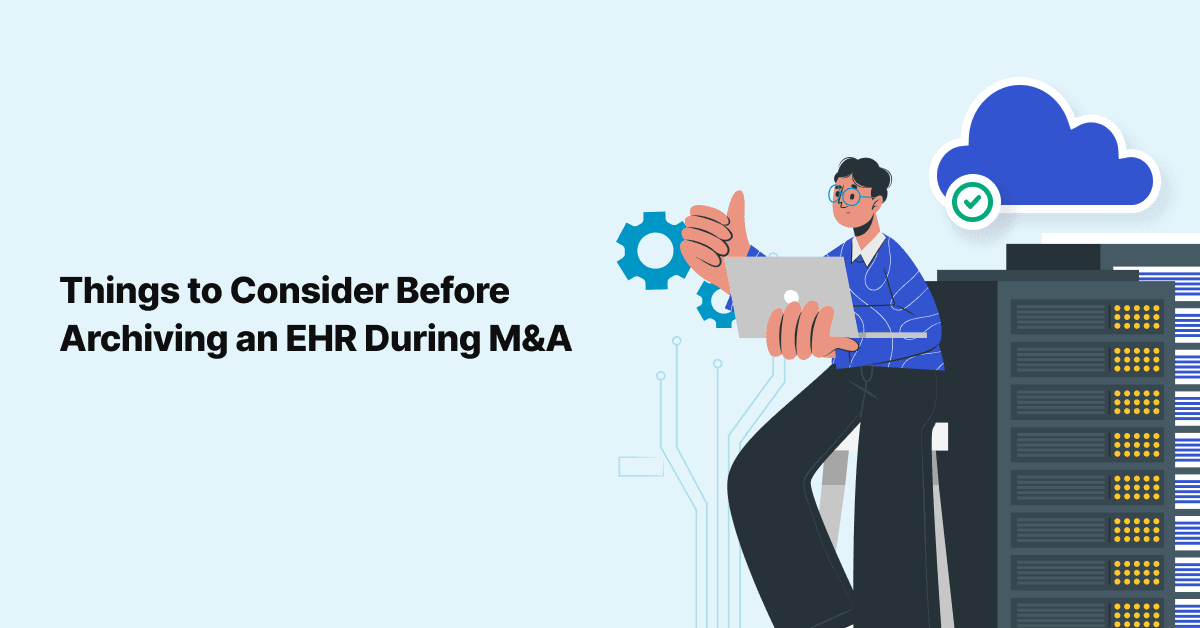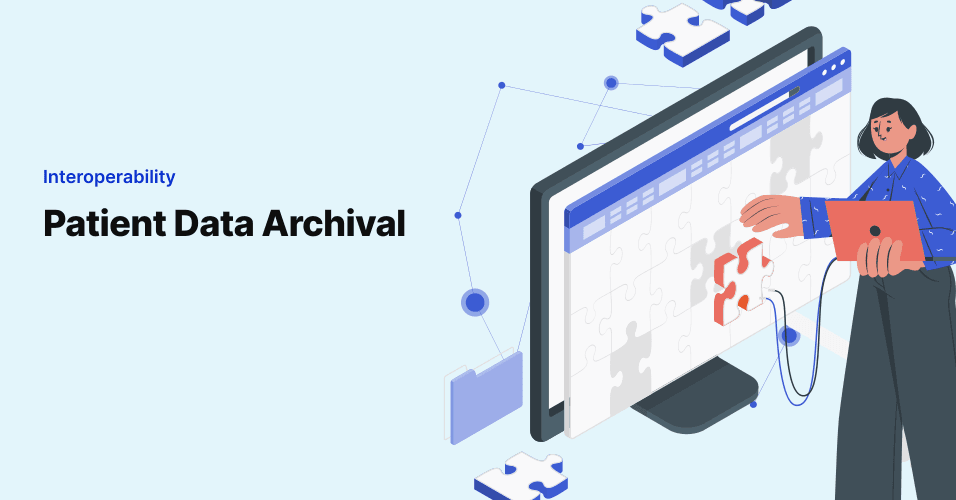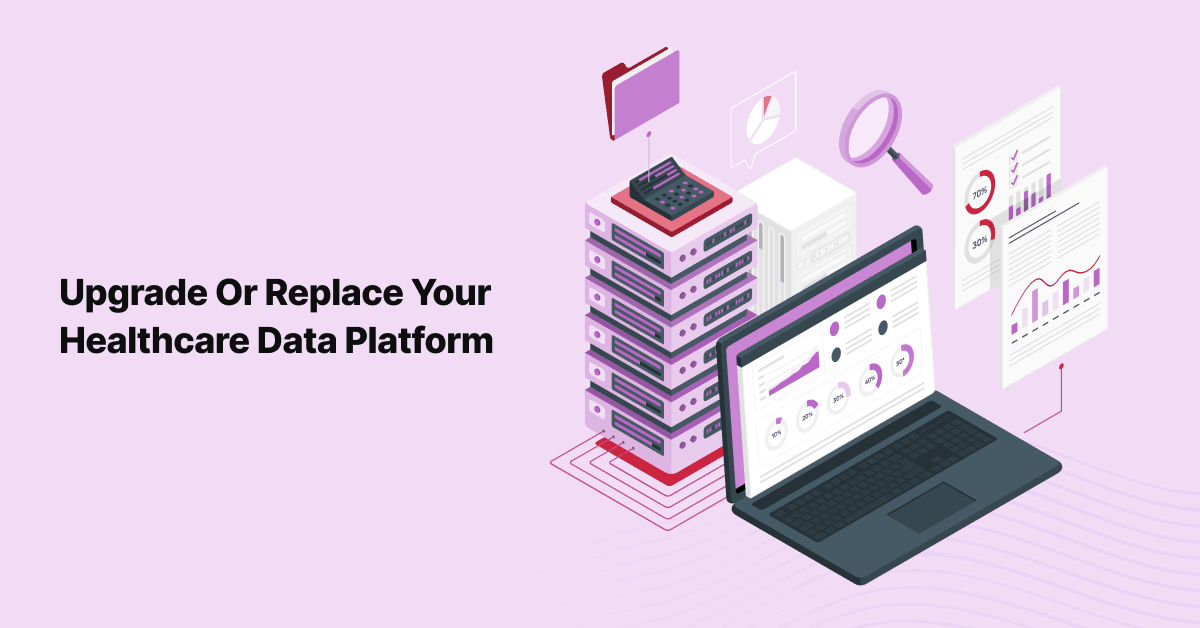
3 Considerations for Healthcare Organizations Going Through M and A Before Archiving an EHR
EHR or Electronic Health Records are being implemented increasingly in health organizations across several …

The relationship that your health system shares with the archive vendors is as crucial a process as health data archival itself. A good collaboration between your health system and data archival vendor will ensure that the outcomes are better and the archiving workflow is more efficient. Time and again, EHR upgrades and archiving processes can throw in a lot of challenges, yet choosing the right archive vendor for your organization and maintaining that collaboration can help overcome those challenges.
Through this article, you will be able to explore the 3 ways of improving collaboration between your health system and your health data archive vendor. They are:
There are several challenges that your healthcare organization can face when it comes to dealing with EHR. Some of the common EHR challenges are:
It is important that your health system makes the archive vendors aware of the challenges that are particular to your organization. Gaining knowledge about the particularities would increase the vendor’s understanding and enhance their ability to overcome the challenges. This would further help in influencing a good partnership between your archive vendor and your organization.
Health organizations must make sure that they are choosing vendors who follow the necessary healthcare regulation standards like Cures Act, HIPAA, Hitech, and so on. They must also ensure that their archive vendor is fulfilling the essential secure archival needs. Some of the ways health organizations can ensure that they are choosing a secure archive vendor are:
Evaluating your archive vendor is essential before you choose them for your health system’s data archival. This is because the health outcomes of the hospitals, including patient safety, get directly impacted if the archival process is not right or secure. When you choose the right vendor for your hospital, the relationship also automatically builds up for the better.
Health organizations usually tend to rely on organizational procedures and techniques similar to the ones they have been using in the past. Sometimes, that may work for your organization, but most other times, it can greatly hinder collaboration. Hence, it is very important to review the policies and processes of your health organization in order to develop for the better. Opening up more and removing work-culture barriers can help in improving collaboration.
Apart from that, there should also be enough trust and transparency between the health system and IT vendors. The process of providing a safe, secure, and reliable archival strategy can be complex. Hence, it is essential to provide accurate insights and opinions to the vendors. Through this, vendors would have the opportunity of sharing the care and decision-making ideas and thus would enhance a safe and secure health data archival.
A good collaboration is a result of both sides playing equally well. Just as it is important for the archive vendors to adhere to the norms and culture of the health system while following the required healthcare standards, it is also essential for the health organizations to pave the way for the vendors to do so. It is important to remember that collaboration is the key to a stronger work environment and better work results. While it is not always easy, following the above-discussed points will help in taking this two-way process to a better place.
Join over 3,200 subscribers and keep up-to-date with the latest innovations & best practices in Healthcare IT.

EHR or Electronic Health Records are being implemented increasingly in health organizations across several …

Currently, we are experiencing the important need to fight and reduce the spread of Covid-19. Appropriate …

The Healthcare Data Platform is one of the most useful and effective innovations that have occurred in …